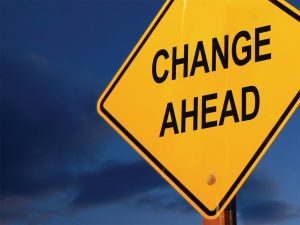 When we look around our lives, the workplace and family we’re surrounded by prolific achievers through modest accomplishers and minor change artists, along to those who simply choose stagnation; the entire range of human endeavor.
When we look around our lives, the workplace and family we’re surrounded by prolific achievers through modest accomplishers and minor change artists, along to those who simply choose stagnation; the entire range of human endeavor.
However, the world is moved by action and those that initiate and make changes.
There are those who are prolific in this regard, seemingly constantly having an effect, making a difference.
But certainly not everyone behaves this way. Many abhor change and seek the status quo. Change is often uncomfortable and makes many fearful.
Others talk of change and what they plan yet do little or nothing towards achieving these ends. Sometimes they seem paralyzed; often considered as talkers not doers.
Not everyone wants change. Some thrive upon its turmoil, others hide away and address only those issues they must.
New situations can be driven by irresistible forces outside our control (social, climatic, disease, political, seasonal, etc.) but many are driven by people with whom we interact. We can make personal adjustments to address effects and impacts upon us from both.
It seems that those who initiate change and strive to impact their own and other’s worlds often live what are regarded or termed full lives.
To many this may be enviable, to others something to be avoided at all cost. After all, to some such prominence and action implies risk.
But being your own Master (/Mistress) over tides of change seems preferable to becoming the flotsam they carry.
In the last decade much has been written and theorized about those who Procrastinate. Certainly, one would think such perceived prevarication impedes an individual’s ability to drive change and novelty.
But Procrastinators can sometimes be highly productive, once direction is set and inevitable they are freed to act.
And Procrastinators are known to often be highly intelligent and capable.
It remains currently theorized that their behavior is driven by three factors:
Procrastination has even been linked to psychological disorders:
- Depression
- Low Self-Esteem
- ADHD and more
Most recent theory characterizes the brain as being hard-wired in such ways that they who procrastinate are considered to simply to have poor connections between (and in) the part of the brain that Considers and that which enables Action. It seems intuitively likely this would leave people locked into inaction.
Given the diversity of expert opinion on the subject we are free to choose from theories that best suit our personal perspective, observations and appears most likely.
Certainly, procrastination is a behavior that is often aligned with inaction, rather than doing.
And we can perhaps gain insight about Doers by reviewing these perspectives (above)…
For instance, if someone will take charge of their own and other’s future they are far less likely to be strongly burdened by Fears of Failure, or Success. And anyone demonstrating a prolific output is unlikely to be Paralyzed by Perfectionism.
I am a strong believer that people should take all initiative possible and self-determine their futures and life-styles.
I also believe we should take great care to understand how our actions (and inactions) will influence the behavior of others.
It is not realistic to assume that a strong Leadership Quality (of Doing) will reside in everyone. Our societies and populations are clearly biased towards a dominant mix of Followers.
A society heavily populated by dominant Leaders would be short-lived. We have accordingly evolved to a balanced mix of subordination in our populations; this is more comfortable, less stressful and easier to control.
In practical purposes this means most social groups are in-bred to go with the flow. However, this general homogeneity can diminish the individual’s life and fuel a sense of being unfulfilled.
It seems where something important to us (dreams, goals, ambition etc.) is going unserved and fading away, we’d be wise to quickly recognize/accept the loss and the underlying reason.
If we can repair a weakness or address a fear, then maybe we should.
Look at your own dreams and goals. Are they slipping away?
Maybe a friend, professional or loved-one can illuminate your loss?
Perhaps you can see your own underlying inhibition or fear and can suppress your misgivings? Certainly, you already know the rewards.
Ian R. Mackintosh is the author of Empower Your Inner Manager Twitter@ianrmackintosh.

